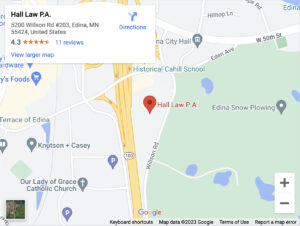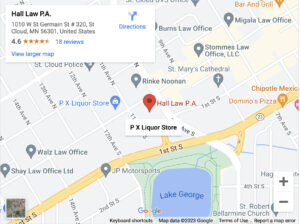
When you file a personal injury lawsuit in Minnesota, you expect the court’s decision to bring closure. But what happens if you believe the judge or jury made a mistake? You may have the right to appeal.
An appeal is a formal process that asks a higher court to review the lower court’s decision. Below is a clear guide to how appeals work in Minnesota and what you need to know if you are considering one.
What is an Appeal?

An appeal is not a new trial. Instead, it is a legal process where a higher court—called an appellate court—reviews the lower court’s decision for errors of law. The appellate court does not hear new evidence or witnesses. Instead, it examines the trial record, written arguments, and sometimes oral arguments from each side to determine whether the trial was conducted fairly and according to the law.
In Minnesota, personal injury appeals usually go to the Minnesota Court of Appeals. In rare cases, a case may be heard directly by the Minnesota Supreme Court.
Common Reasons for an Appeal
Not every unfavorable verdict can be appealed. You must show that a significant legal error affected the outcome of your case.
Common reasons for appeal include:
- Incorrect Application of the Law: If the judge misinterpreted or misapplied Minnesota law, it could be grounds for appeal.
- Improper Admission or Exclusion of Evidence: Evidence that should have been admitted—or excluded—can impact the fairness of a trial.
- Jury Misconduct: If jurors acted improperly, such as considering outside information, it may justify an appeal.
These issues must be more than minor mistakes. The error must have influenced the final decision.
Deadlines and Filing Requirements
Timing is critical in Minnesota appeals. Generally, you must file a Notice of Appeal within 60 days after the final judgment or order is entered. Missing this deadline can cause you to lose the right to appeal.
Along with the Notice of Appeal, you will need to provide:
- A filing fee
- A statement of the case outlining the issues on appeal
- The trial court record and transcripts
Your attorney will also prepare a detailed written brief that explains the legal errors and why the decision should be changed.
Steps in the Appeals Process
Notice of Appeal
The process begins when you file a Notice of Appeal in the trial court and the appellate court. This alerts the courts and the opposing party that you are challenging the decision.
Record Preparation
The trial record—transcripts, evidence, and motions—is compiled. This record is the foundation of the appeal.
Written Briefs
Your attorney submits a written argument, known as an appellate brief, explaining the errors made and citing relevant legal authority. The other side also files a brief to argue why the trial court’s decision should stand.
Oral Argument
In some cases, the appellate court will schedule an oral argument. Both sides present their positions and answer judges’ questions.
Court Decision
After reviewing the briefs and the trial record, the appellate court will issue a written opinion. The court can affirm (agree with), reverse (overturn), or remand (send back) the case for further proceedings.
Possible Outcomes of an Appeal
- Affirmation: The appellate court agrees with the lower court’s decision, and nothing changes.
- Reversal: The appellate court overturns the decision, which may mean a new trial or a different judgment.
- Remand: The case is sent back to the trial court for additional action, such as reconsidering a specific issue.
Each outcome has different effects on your case, so it is important to discuss them with your attorney.
Moving Forward After an Appeal
Even after an appeal is resolved, further legal steps may remain. If you win, the case may return to the trial court for a new trial or additional hearings. If you lose, you may have the option to ask the Minnesota Supreme Court to review the case. Your attorney can advise you on the best next steps based on the appellate court’s decision.
Contact Hall Law Personal Injury Attorneys for a Free Consultation
Appealing a personal injury case in Minnesota is not easy, but it can be essential when serious legal mistakes occur. Understanding the appeals process—from filing deadlines to possible outcomes—can help you make informed decisions.
With an experienced attorney by your side, you can navigate this complex path and pursue the justice you deserve. Reach out to Hall Law Personal Injury Attorneys for a free, no-obligation consultation. You can contact us online or call (800) 292-1979 today.


